
A show about relationships with the land
There are many ways to listen to the show: Listen live on CFRU 93.3 fm broadcasting from the University of Guelph Mondays at 6pm EST or listen to the podcast via Spotify, Apple, or just follow the rss feed.
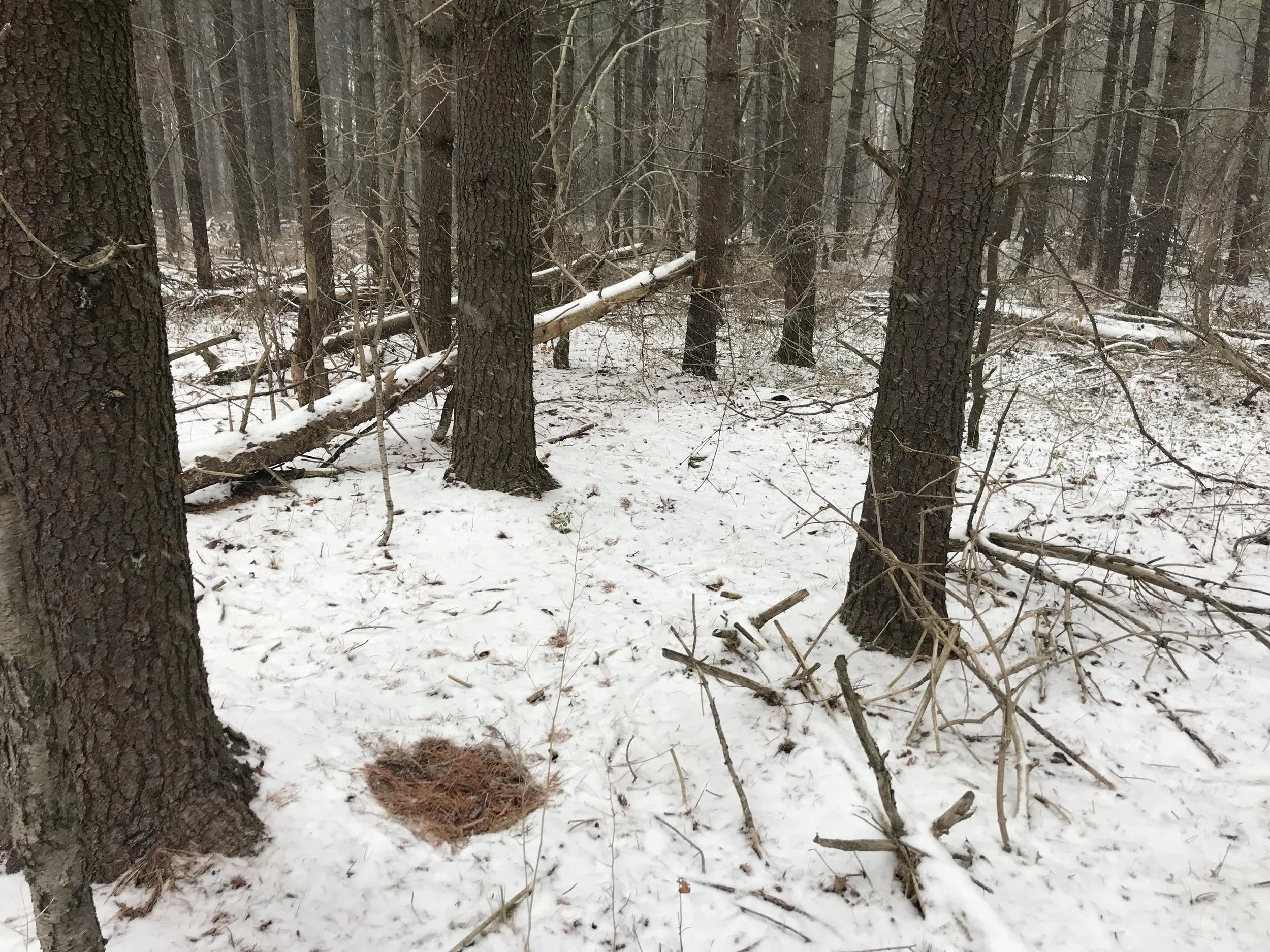
Ep. 258 : The Gifts of Tracks
I spent the day out tracking, when I got to thinking about gifts that are the tracks which are left behind without consideration of how the tracker might feel or what we may want out of the experience. I was struck by awe and wonder when I came across the bed and was truly grateful for this gift left behind by the animal that was there so recently.
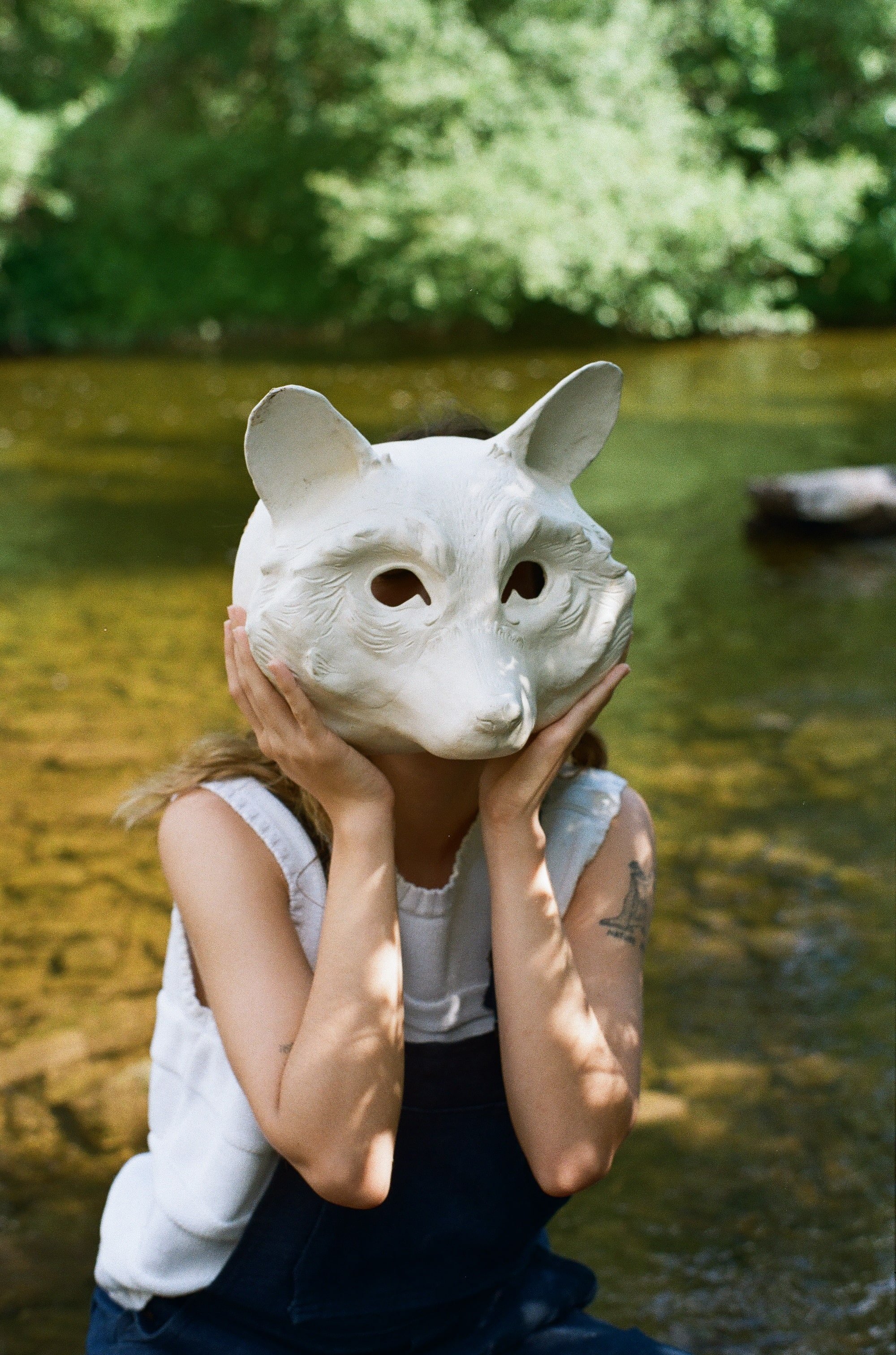
Ep. 224 : Animal Forms with Miki Tamblyn
Animal Forms is a project is all about empathy, about remembering how to be in connection with the other-than-human world. As Miki asks, “aims to explore how we (humans) can imagine ourselves in the place of the other people we share our planet with. How might our thoughts and actions change if we practiced seeing the world through another's eyes?”
Miki Tamblyn has created a project where folks can practice being an other-than-human animal.
We sat down at the site of the project, along the Eramosa River in Guelph to discuss inspiration, project formation, overall response to the project and its goals, as well as the experience of embodiment of another form of life.
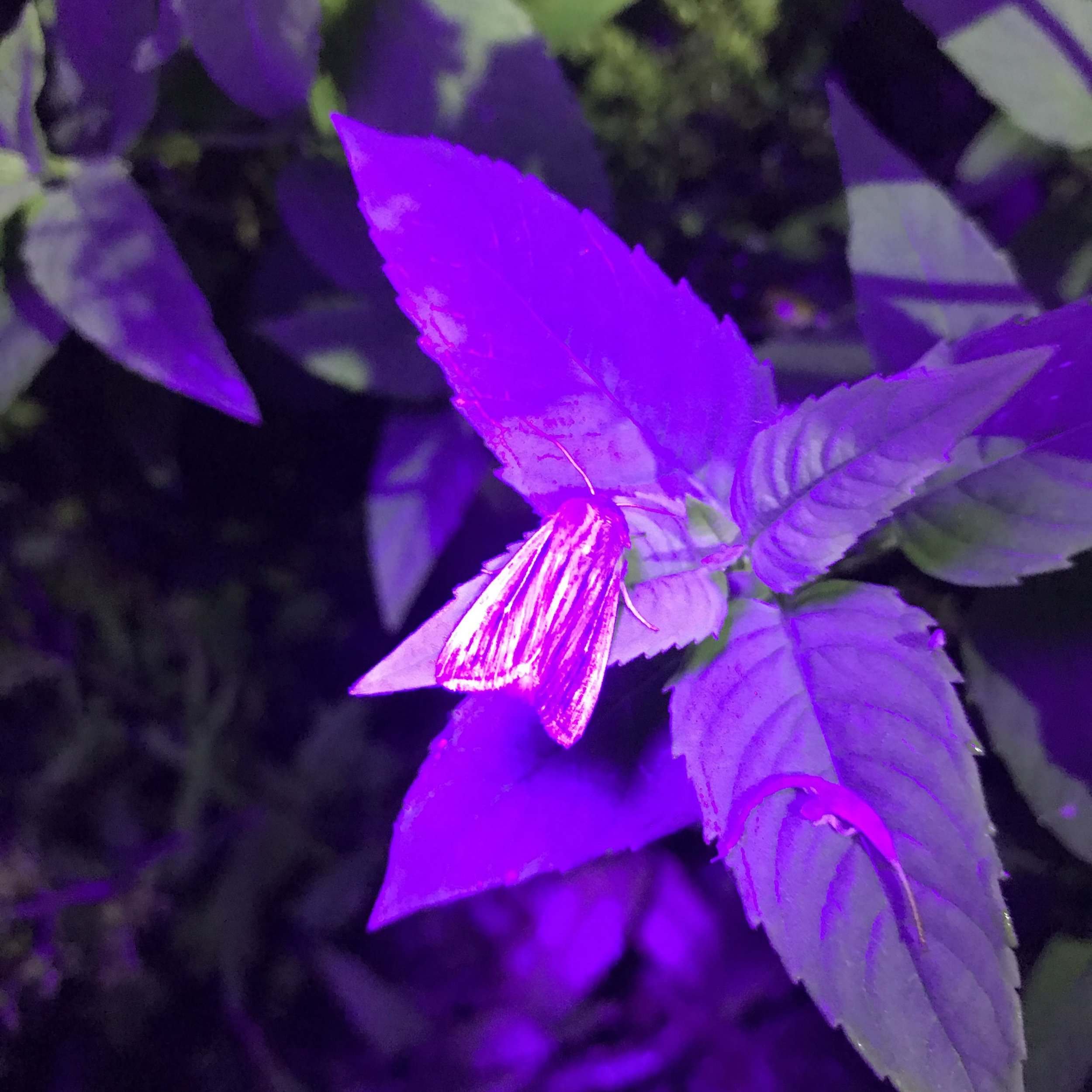
Ep. 223 : Moth Garden with Lisa Hirmer and Christina Kingsbury
In some circles, reciprocate is the new “sustainable”, a hot word which implies a lot but isn’t always doing what we might imagine. But how can we try to actually live up to, and create the reciprocity, the giving back and forth, to that and those who give us so much?
For me, Moth Garden feels like a project trying to demonstrate reciprocity in a real, tangible, replicable ways. Christina Kingsbury and Lisa Hirmer have been researching, planting, growing and shaping a garden with an intention of creating sensory worlds for/of the more-than-human, nourishing spaces planted with food, shelter, and room for transformation and rest; planted for often maligned and misunderstood members of our broad interspecies communities.
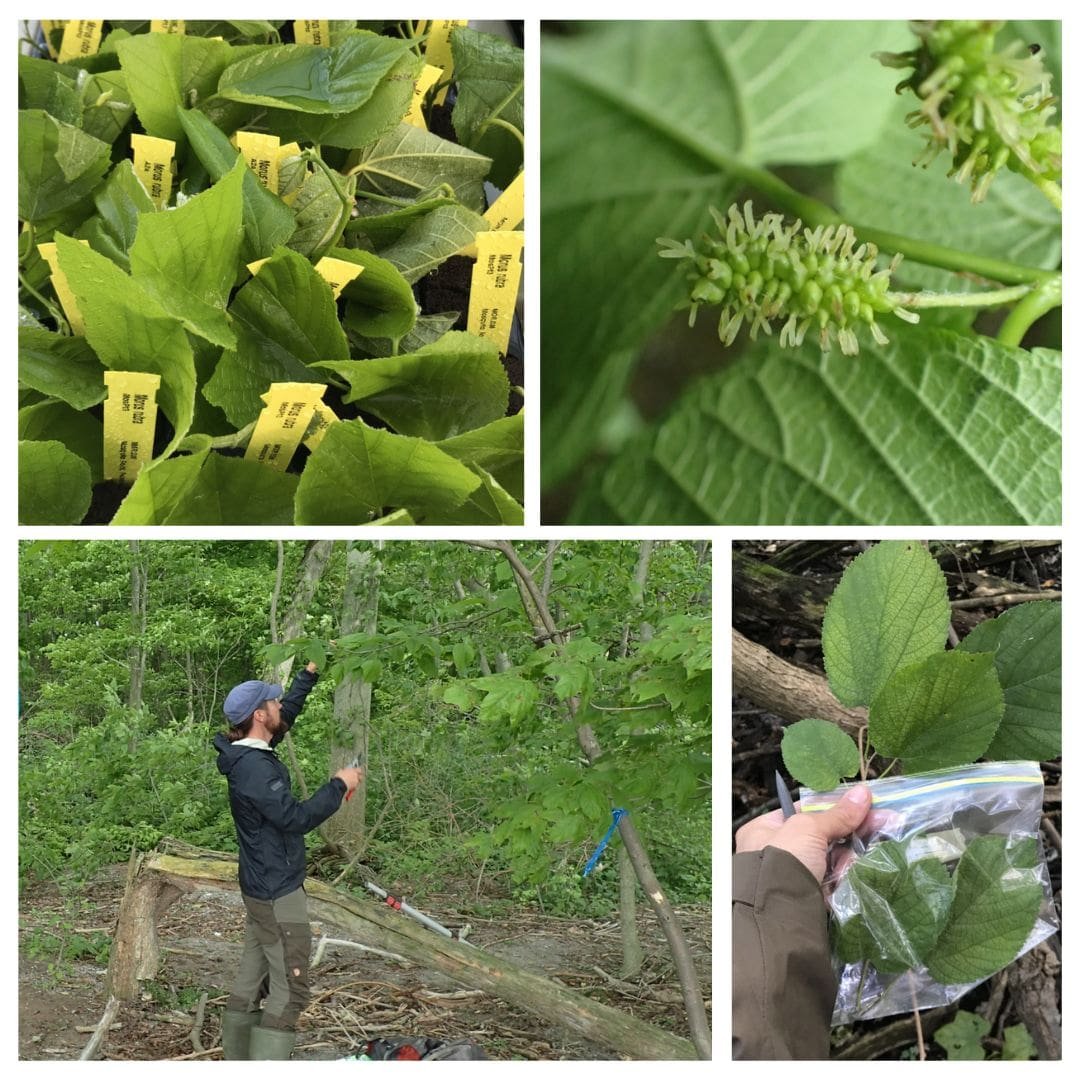
Ep. 222 : Red Mulberry Recovery Program with Sean Fox
A couple of days after my recent interview discussing Mulberries with Matt Soltys, the Arboretum at the University of Guelph shared a couple of posts on instagram about the Red Mulberry Recovery Program where researchers are looking into how to identify, propagate, and eventually distribute Red Mulberries to their partners. They are also trying educating the public on how the White or Asian Mulberries can be detrimental to conservation of the Red Mulberries. Immediately I wrote to them to try and set up and interview.
Gratefully Sean Fox, senior research associate at the Arb, took the the time to get into the complexity and nuance of dynamic movements of species and how we can take actions towards conservation of a species which is endemically endangered.
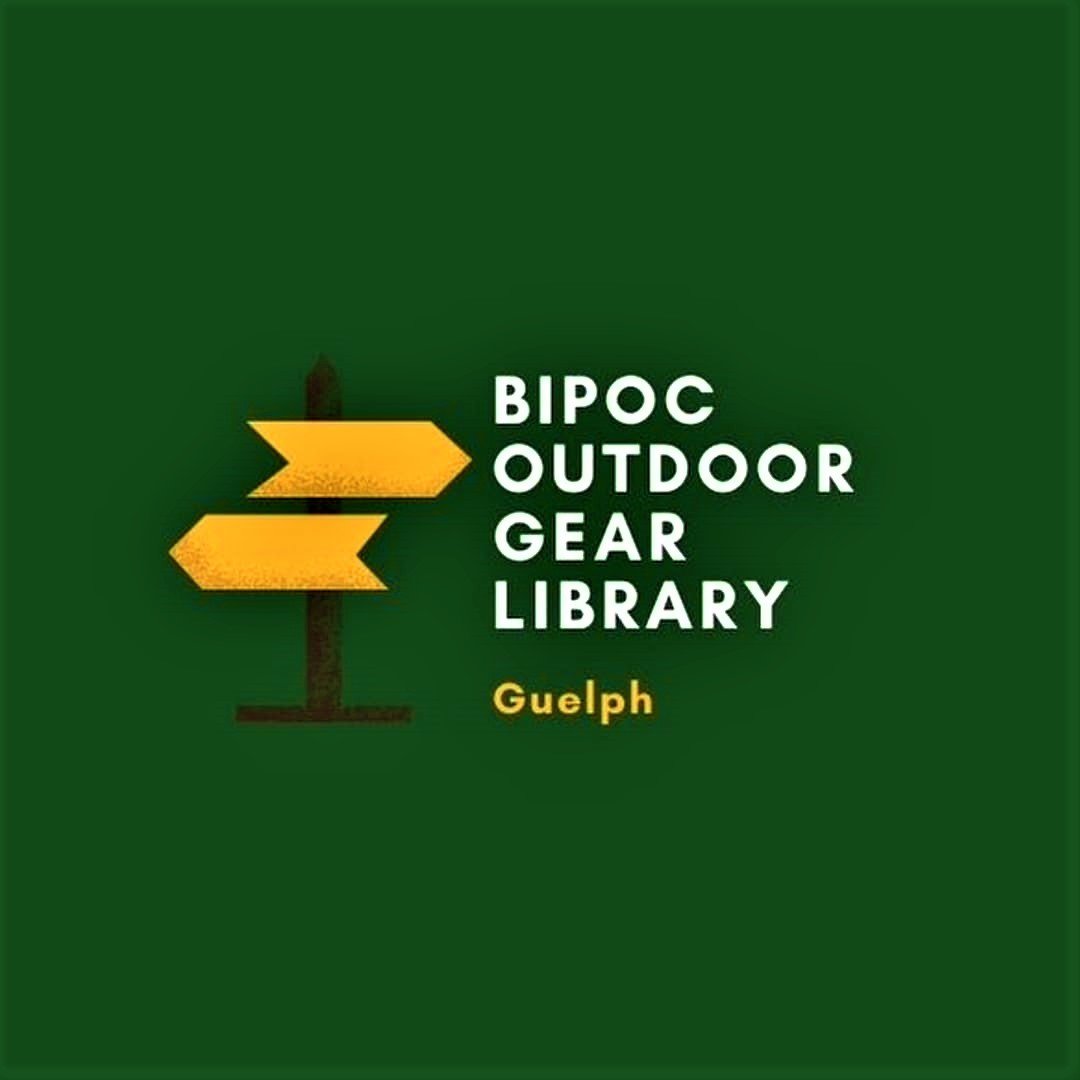
Ep. 210 : BIPOC Outdoor Gear Library
Over and over on this podcast (and through the blog) I have spoken to the need to be outdoors and the value for us emotionally, physically, spiritually and socially in participating with the wider wilder world around us. But when these opportunities are interrupted by white-supremacist narratives on who belongs outdoors, the BIPOC Outdoor Gear Library steps up and reminds us that everyone belongs outside!
BIPOC Outdoor Gear Library is a community-based lending library focused on providing access to outdoor equipment for the BIPOC communities of (so-called) Guelph and the surrounding areas. Their gear list includes snowshoes, kayaks, camp stoves, fishing poles, bikes, coolers, sleeping bags, and so much more. But it doesn’t end there. There are events like social hikes, yoga and meditation, archery, cross-country skiing outings, even an overnight camping and paddling weekend!
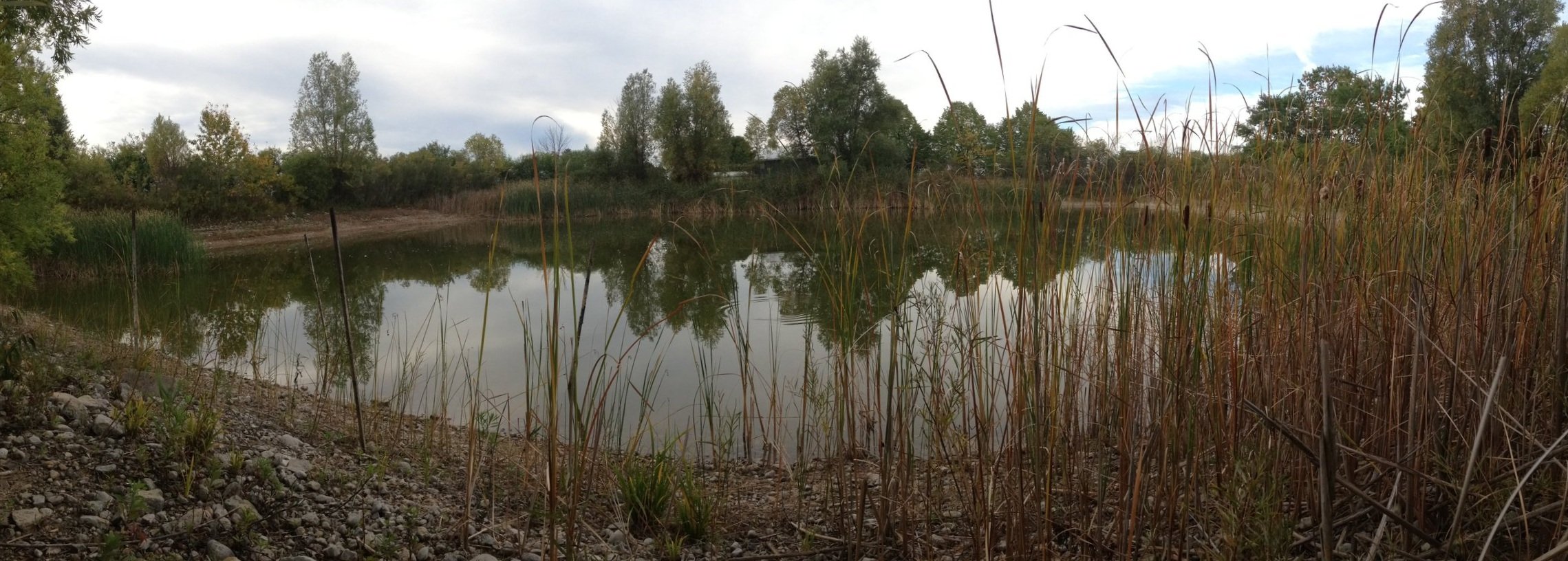
Ep. 197 : Sit Spots
It’s easy, pretty accessible and turns out to be a lot of fun and often full of learning. A sit spot, or magic spot, or secret spot or whatever else you might call it is simple. Just go find your sit spot, close to home, accessible and easy and then sit there, quietly.
Nature is everywhere, and we can notice it in all sorts of ways. Be it our balcony, backyard or a bench at the park. Find a spot you can go to reliably and find a nice place to sit.
Doesn’t really matter where you are even. Friends have done sit spots from their kitchen windows, from their prison cells, from balconies 9 stories up. It is an extremely valuable practice that I would wholly endorse to anyone seeking to learn more about the land.
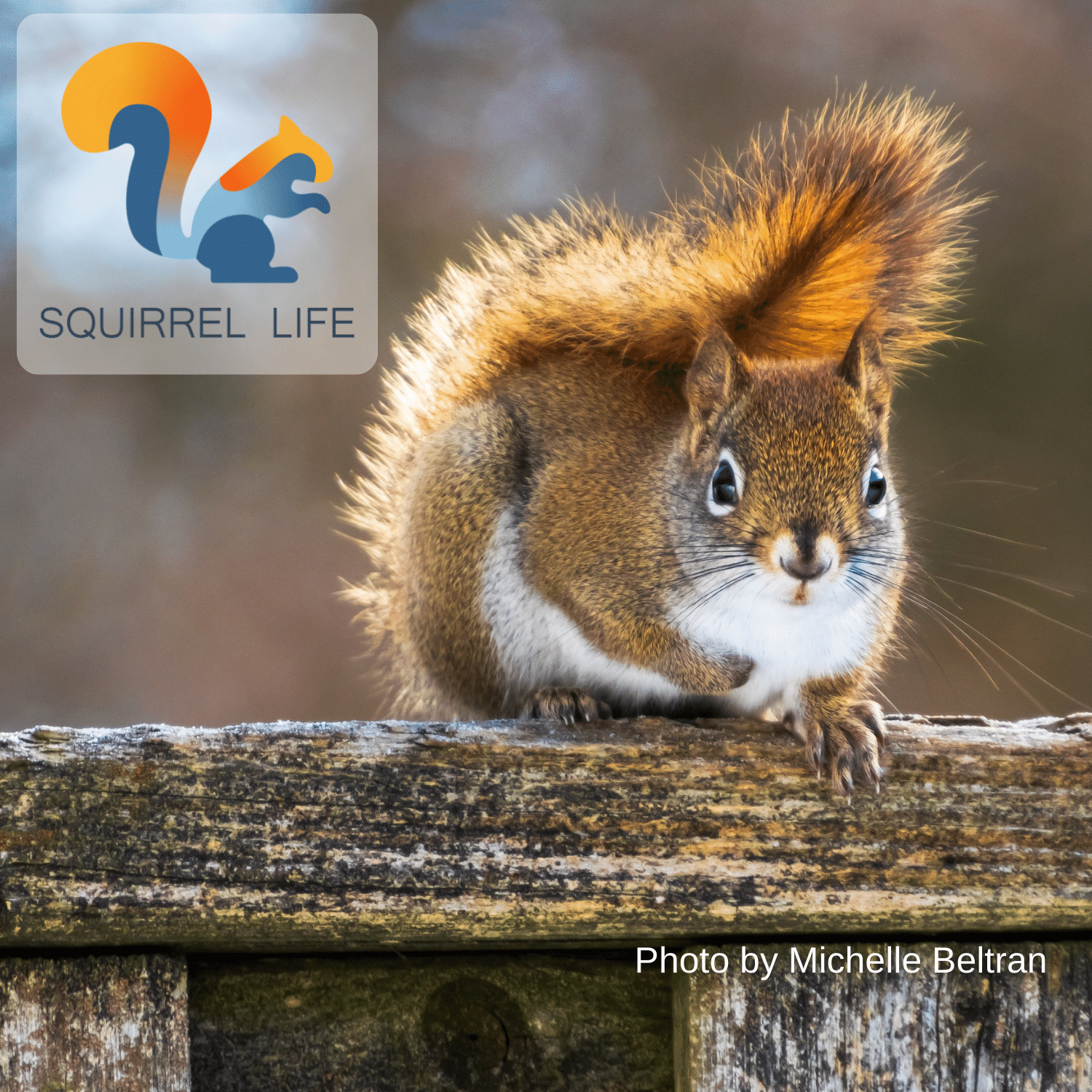
Ep. 186 : Squirrel Life Project with Elizabeth Porter
Birdwatching is obviously a thing as birds are everywhere, loud, demonstrate interesting behaviours, and they are often brightly coloured. Squirrels too are everywhere, loud, and demonstrate interesting behaviours. They aren’t brightly coloured, but their brindled, black, red, brown, grey, or even white in the case of some albino individuals at Trinity Bellwoods downtown Toronto, are still a joy to observe. So why not take up Squirrelwatching?
Elizabeth Porter is the project coordinator for the Squirrel Life project which is developing an app to collect community sourced observations of Squirrels and their varied, interesting and often comical behaviour and then enables future researchers to access the shared collected data for their research. It’s a project with many aims including getting folks outside to observe wild life close to home while encouraging a closer look at varied Squirrel behviours which are happening all around, all the time. Along the way, Elizabeth is looking at how to communicate scientific research and findings with broad diverse communities. A great goal.
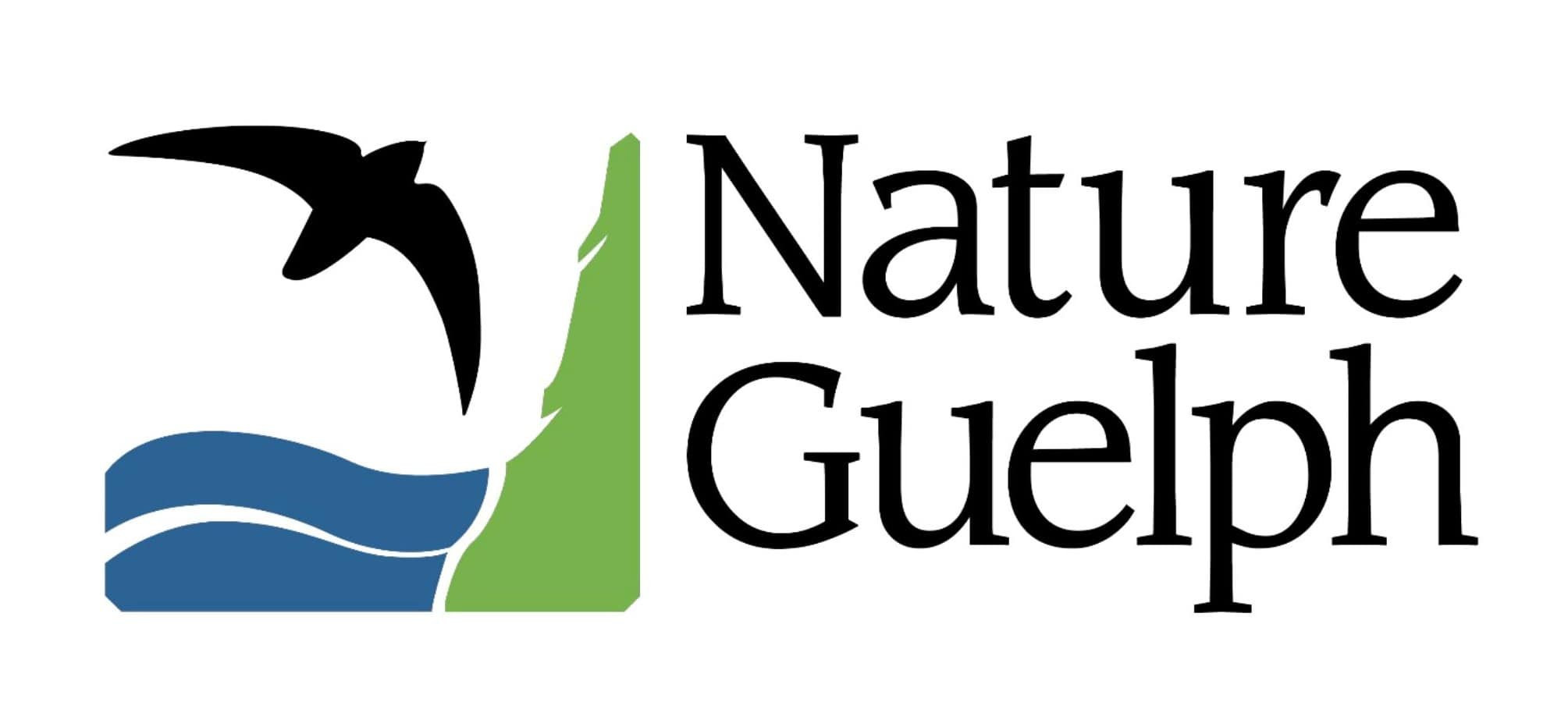
Ep. 184 : Nature Guelph
Nature Guelph was established in 1966 and since then has been promoting connection with the lands in and around the city I now call home. I have been attending their events for years, always drawn in by their knowledgeable speakers and presenters and great community. It has been a hub for naturalists in Guelph and I have been so lucky to get to know the broader community of humans and non-humans through their efforts.
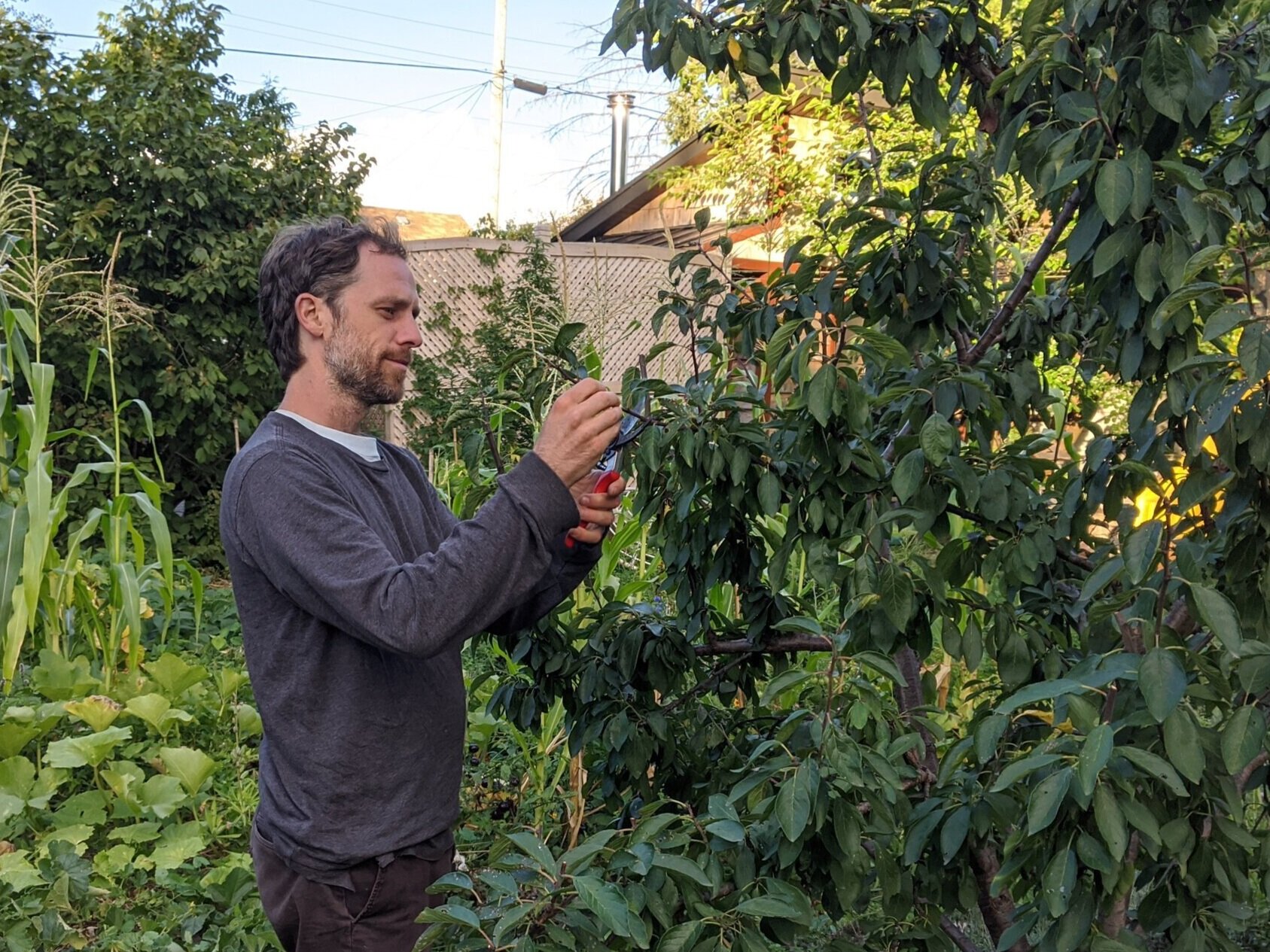
Ep. 171 : Matt Soltys, The Urban Orchardist
I sat down with an old friend, Matt Soltys, otherwise known as The Urban Orchardist, for a conversation about his work as an orchardist, and his business helping folks start growing their own.
We spoke about food sustainability, local food culture, how fruit trees help sequester carbon, build community and of course, give food.

Ep. 162 : Talking trees with Dawn Matheson
Dawn Matheson wants to start connecting with trees, or a specific tree rather, at the University of Guelph Arboretum but she’s unsure which one yet. There is a process to get to know a tree and she is in the midst of sorting out that process. How do you find a friend in a tree when the culture around us says humans and trees can’t be friends? Well, she makes friends with other humans who are already friends with trees and starts from there.

Ep. 150 : Wellington Water Watchers
Wellington Water Watchers (WWW) is a grassroots organization working towards protecting their local water. Through centering indigenous and marginalized struggles as a lighthouse to current and future Water Watchers campaigns, and through developing partnerships with other seemingly disparate local organizations, they have been working to challenge the destructive machinations of bottled water corporations (Nestle specifically), developers, and provincial and federal governments who have been neglecting or outright attacking safe clean drinking water and the natural habitats where that water comes from.
Arlene Slowcombe, executive director of Wellington Water Watchers, talks on the show about how they and their allies are working to protect water and oppose those who would endanger not only the most precious and vital of “resources”, but the key to all life on earth.

Other platforms where you can listen to the show :
As well as : Pocket casts : RadioPublic : ListenNotes : Podcast Republic


